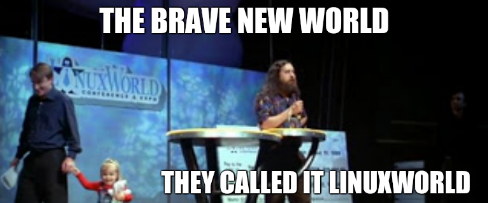
e9467cde25953897a0ddf8f1d72d9208
THE OLD monopolists (IBM in the mid-twentieth century and Microsoft in the later part of that century) don't want people to control their computers and be in charge of their computing. What's the surprise here? There's no business model to it. They'd rather keep people perpetually dependent on corporations and, via corporations, dependent on governments too.
 There's a rarely explored theme in society and in civil society's history, as seen in the antiwar movement and fights for a vote, for a fair salary, sick leave etc. What corporations want is very often the exact opposite of their workers' needs. In the EPO, which nowadays acts like a for-profit corporation, Benoît Battistelli and António Campinos have treated patent examiners (i.e. people who do all the actual work) like disposable junk.
There's a rarely explored theme in society and in civil society's history, as seen in the antiwar movement and fights for a vote, for a fair salary, sick leave etc. What corporations want is very often the exact opposite of their workers' needs. In the EPO, which nowadays acts like a for-profit corporation, Benoît Battistelli and António Campinos have treated patent examiners (i.e. people who do all the actual work) like disposable junk.
"Don't let these career lobbyists dictate what we want or need. They don't represent people (corporations are not people), they represent or front for the interests of money and power."In the video above I express my thoughts about the current situation, seeing that the war on Stallman has mostly calmed down (for now) and Torvalds barely gets to make big decisions in his own project. There are several recent examples of the latter. Rust (funded by Google, developed by Mozilla, hosted by Microsoft) is a prominent instance of corporations/monopolies making the big decisions through front groups called "security" something while the corporate media portrays issues like weak passwords as a "Linux" problem (we shared several examples of that in our Daily Links this past week).
Remember that we're stronger together and some groups that only claim to represent communities (e.g. GNOME Foundation and Linux Foundation) may in fact be partly or fully captured by monopolies. Don't let these career lobbyists dictate what we want or need. They don't represent people (corporations are not people), they represent or front for the interests of money and power. ⬆
Of note (from the video): How To Sign the Letter in Support of Richard Stallman Without GitHub